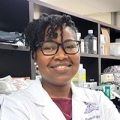Since 2012, Dennis Troper and Susan Wojcicki have generously funded 38 innovative pancreatic cancer and lung cancer research projects, led by 10 principal investigators in the Johns Hopkins Department of Pathology.

Dr. James Eshleman
“The significant funding provided by Dennis Troper and Susan Wojcicki has allowed us to demonstrate that cancers can be genetically targeted—a truly novel approach to cancer therapy. The progress we have made would not have been possible without their generous support.”
James R. Eshleman, M.D., Ph.D.
The Ralph H. Hruban, M.D. Professor in Pancreatic Cancer Research

Dr. Ralph Hruban
“Generosity is a force for good. Dennis Troper and Susan Wojcicki have empowered innovation by funding critical cancer research that has directly impacted patient care. The biggest difference one can make in life is to help others. They have had and will continue to have an extraordinary impact on patients and families across the United States and around the globe who benefit from their vision, creativity, and genuine kindness. We are enormously grateful to Dennis and Susan for empowering big ideas and bold solutions!”
Ralph H. Hruban, M.D.
The Baxley Professor and Director of Pathology
Director, Sol Goldman Pancreatic Cancer Research Center

Dr. Michael Goggins
“Dennis Troper and Susan Wojcicki’s generous support of CAPS has enabled my team and me to demonstrate that long-term survival through early detection of pancreatic cancer can be achieved in the clinic. We are currently enrolling hundreds of patients to evaluate our tumor marker gene test in a clinical trial open to all the multi-center CAPS sites. Our goal in the coming years is to have this gene test, which personalizes the interpretation of blood levels of commonly used tumor markers, become part of the standard of care for patients undergoing pancreatic surveillance.”
Michael G. Goggins, M.B., M.D.
The Sol Goldman Professor in Pancreatic Cancer Research

Dr. Ashley Kiemen
“The support from Dennis Troper and Susan Wojcicki has had a major impact on my career. During my graduate studies, their investment in digital pathology funded my thesis project—the development of CODA as a technique for 3D mapping tissues with integration of genomic and transcriptomic techniques to better understand pancreatic cancer early development. Their ongoing contributions have enabled me to advance my career at Johns Hopkins. I am passionate about continuing to investigate the development and invasion patterns of pancreatic cancer.”
Ashley L. Kiemen, Ph.D.
Assistant Professor of Pathology

Dr. Janielle Maynard
“As a junior investigator, philanthropic support from Dennis Troper and Susan Wojcicki made it feasible for me to continue my mission to ensure that students, who are otherwise underrepresented in science, are given the opportunity to explore their scientific potential, build their confidence, and thrive in a nurturing environment that fosters a sense of belonging within academia.”
Janielle P. Maynard, Ph.D.
Assistant Professor of Pathology

Dr. Nicholas Roberts
“Genetic testing to identify disease-causing variants in patients with pancreatic cancer is becoming more common. However, genetic testing identifies many variants, including variants of uncertain significance, which cannot easily be classified into disease-causing or benign classifications. This poses a significant clinical problem as patients and their family members who carry a variant of uncertain significance are not eligible for targeted therapies and surveillance protocols under current clinical care guidelines. To address this issue, we developed a high-throughput, cell-based assay to classify CDKN2A variants as either disease-causing or benign. Using this assay, we preemptively classified all possible CDKN2A missense variants as either disease-causing or benign. Now, when a patient undergoes genetic testing and a CDKN2A variant is identified, we can provide an appropriate variant classification. This is the breakthrough I am most excited about. The impact of this work on patients and their family members cannot be understated, and it is only possible because of Dennis Troper and Susan Wojcicki’s generous support.”
Nicholas J. Roberts, Ph.D., Vet. M.B.
Assistant Professor of Pathology

Dr. Jonathan Schneck
“Susan Wojcicki and Dennis Troper’s vision has helped me pursue my dream. Even as an M.D./Ph.D. student at Albert Einstein College of Medicine, I always knew I wanted to practice medicine and conduct research. During my pediatric training, I felt both the anguish and pain of children and their families, and saw the challenges of clinical medicine. This affirmed my desire to engage in clinical medicine and research. When joining the Johns Hopkins Medicine faculty, I shifted my focus away from clinical medicine and pursued medical practice with laboratory research so that my work would impact medicine broadly. The funding Susan and Dennis provided has given me, and continues to give me, that opportunity. It has supported larger grants and initiatives, such as the Johns Hopkins Translational ImmunoEngineering Center, which impacts the environment here at Johns Hopkins. Their generosity has also facilitated the formation of a company, Neximmune, based on the technology and intellectual property portfolio developed in my laboratory. Neximmune had an upsized initial public offering, $110M, in 2021 and is now in phase one clinical trials. Additionally, as part of the Johns Hopkins Translational ImmunoEngineering Center, the Advanced Research Projects Agency for Health selected us to apply for EMBODY funding. Together with our colleagues, we are shortlisted for EMBODY, which will fund first-in-human studies for novel therapies for cancer, lymphoma, and the autoimmune disease, lupus. I am deeply thankful for Susan and Dennis’s vision and support, allowing me to actualize my dreams, even from as long ago as my M.D./Ph.D. student days.”
Jonathan P. Schneck, M.D., Ph.D.
Professor of Pathology

Dr. Laura Wood
“Using a three-dimensional multi-omic tissue modeling approach developed with the generous support of Dennis Troper and Susan Wojcicki, we discovered a shockingly high abundance of precancerous lesions in normal human pancreas—with one pancreas containing hundreds or even thousands of precancers. Genetic characterization demonstrated that all of these precancers contain mutations in the KRAS gene known to be associated with advanced pancreatic cancer. These studies, recently published in the journal Nature, deepen our understanding of early pancreatic tumorigenesis and underscore the importance of deep characterization of human tissue. This provides a rational foundation for the application of approaches to prevent pancreatic cancer, particularly by targeting KRAS.”
Laura D. Wood, M.D., Ph.D.
Associate Professor of Pathology

Dr. Hui Zhang
“With support from Susan Wojcicki and Dennis Troper, we were able to significantly advance our research characterizing intraductal papillary neoplasms of the pancreas and pancreatic cancer, gaining crucial insights into the transition from non-invasive neoplasm to deadly invasive pancreatic cancer. The study presents an in-depth characterization of the patterns of proteins and glycoprotein expression during the progression from normal duct to intraductal papillary neoplasm to invasive pancreatic cancer. This understanding forms the basis for evidence-based approaches to early detection and novel treatment strategies. By analyzing a panel of somatic mutations and protein/glycoprotein markers in cyst fluid, we feel this will improve the management of patients with pancreatic cysts. Through Susan and Dennis’s generous philanthropy, we are training the next generation of cancer researchers. Their genuine kindness toward these promising individuals has provided the support for the tools and innovative environment needed so they can succeed and contribute significantly to the science. By learning to utilize cutting-edge methodologies, these young scientists can participate in large-scale clinical sample studies, marking the first time the technologies have been applied on such a scale in the characterization of intraductal papillary neoplasms of the pancreas and pancreatic cancer. These young investigators gain invaluable opportunities to engage with leading experts in the field and grow independently. For instance, through related research, T. Mamie Lih, Ph.D., one of our postdoctoral researchers specializing in data analysis, has been promoted to a faculty position; and Yuefan Wang, Ph.D., a researcher in data generation, is progressing along a similar path.”
Hui Zhang, Ph.D.
Professor of Pathology

